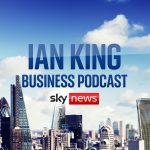The merger of Saudi-backed LIV Golf with the US-based PGA Tour is stunning.
In the short term, the deal brings to an end a row that has torn apart the world of golf and resulted in the break-up of established friendships.
Longer term, though, the two parties are hoping it will be transformative for golf’s finances.
The big change is that the bodies – along with the DP World Tour, which organises men’s professional golf tour in Europe – envisage forming a for-profit business.
It means that, more than ever, professional golf will be organised in a way intended to grow its earnings potential.
As Jay Monahan, the PGA Tour commissioner and the putative chief executive of the merged organisation, told CNBC today: “It will produce an investment return.”
Central to this is widening audience participation for professional golf and maximising revenue-generating opportunities from that.
CBI secures hope as members approve conduct scandal reform package
PGA Tour agrees to merge with Saudi-backed rival LIV Golf
Lloyd Webber’s empire seeks new conductor as Farmer exits stage left
Mr Monahan noted that, while interest in golf globally is at an all-time high, more people now follow professional golf ‘off-course’ – in other words by watching on television or the internet – than those paying to watch tournaments live ‘on-course’.
In all likelihood, that means the combined body will be seeking more for broadcasting rights, both online and on television.
It also means, in all probability, that professional golfers are going to become much wealthier.
One reason that LIV Golf succeeded in luring away big-name stars like Dustin Johnson, Phil Mickelson, Lee Westwood and Sergio Garcia from the PGA and European Tours was because some players felt that they had not been paid enough for their efforts in the past.
This was effectively acknowledged by those tours increasing their prize funds in response to the launch of LIV Golf.
Enabling this expansion will be an investment from Saudi Arabia’s Public Investment Fund, the country’s sovereign wealth fund, which said at the launch of LIV Golf that it was prepared to pump $2bn into the competition.
The PIF governor Yasir Al-Rumayyan, who will become chairman of the merged body, told CNBC today that his organisation stood ready to invest “billions” more in the new organisation.
Mr Al-Rumayyan, who also chairs the PIF-owned Newcastle United FC, put the total value of the global golf industry at $100bn and suggested that could be increased significantly in coming years.
There are a great many questions posed by this combination.
The bodies involved have yet to publish details on the terms of the proposed merger other than to say that these will be published in coming weeks and that the PGA Tour will appoint a majority of the new body’s board. The valuations put on the various bodies coming together will be of huge interest.
The biggest question, however, is whether this merger effectively marks a back-door takeover of professional golf by Saudi Arabia.
The PIF will initially be the exclusive investor in the new entity, alongside the PGA Tour, LIV Golf and the DP World Tour, but going forward it will have the exclusive right to further invest in the new entity. It will also enjoy a right of first refusal on any capital that may be invested in the new entity.
That means Saudi Arabia, via the PIF, could end up ultimately owning the organisation.
And, if the new organisation is to be profit-making, there may be concerns about what that may mean for those bodies previously supported by professional golf. The PGA Tour reckons that, in the 55 years it has existed, it has distributed some $3.64bn to the communities in which its professional tournaments have been staged.
What is behind this merger?
A number of factors. The PGA and DP World Tours will deny it, of course, but there is little doubt they have been damaged by the launch of LIV Golf and its prising away of some top players, most notably Brooks Koepka, who had previously pledged to remain with the PGA Tour.
Be the first to get Breaking News
Install the Sky News app for free
The ending of costly litigation against the deep-pocketed LIV Golf will also be welcome. For LIV Golf, throwing in its lot with the PGA and DP World Tours will give it a respectability that has so far eluded it – in particular hindering its ability to seal lucrative broadcasting deals in the United States.
Some will see this as a further attempt at ‘sportwashing’ by Riyadh.
Apart from Newcastle United, Saudi Arabia – via the state-controlled oil producer Aramco – has a strategic partnership with Aston Martin’s Formula One racing team, as well as other motorsport events such as the Dakar Rally.
Aramco also sponsors a number of tennis and esports tournaments while more recently it has gone into cricket, partnering with the Indian Premier League, which is fast-becoming one of the world’s biggest and most lucrative sports competitions. And, just yesterday, the PIF took 75% stakes in in four of Saudi Arabia’s biggest football clubs – Al-Ahli, Al-Hilal, Al-Ittihad and Al-Nassr, the outfit for which former Manchester United star Cristiano Ronaldo turns out.
This, though, looks to be an investment of a bigger order altogether – because, it seems, Saudi Arabia is effectively looking ultimately to own an entire organising body. To that end, the investment can be seen in keeping with the way the US media giant Liberty acquired Formula One some years ago or in which funds controlled by the private equity firm CVC have taken a strategic stake in rugby union’s Six Nations competition.
That the new body can sharpen up professional golf’s financial performance, though, does not seem to be in doubt.
Anyone disagreeing with that should ask themselves how it has been possible for an upstart competition – albeit one with strong financial backing – to come from nowhere in two years to a position where it can merge with global golf’s two longest established and prestigious professional tours.
Perhaps the biggest unanswered question, though, is not a financial one but a sporting one.
The creation of LIV Golf created huge bitterness and enmity in the golfing world. There was a lot of criticism of the players who defected to LIV Golf for supporting a regime responsible for the 2018 murder of journalist Jamal Khashoggi.
How quickly those fractured relationships can be patched up will be crucial.






















